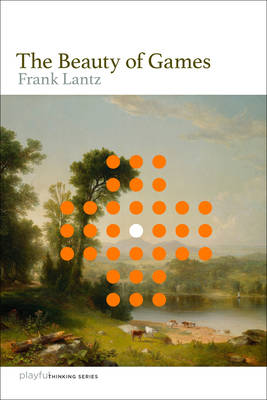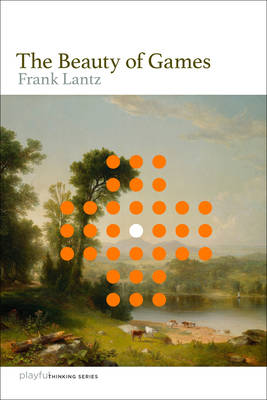
Je cadeautjes zeker op tijd in huis hebben voor de feestdagen? Kom langs in onze winkels en vind het perfecte geschenk!
- Afhalen na 1 uur in een winkel met voorraad
- Gratis thuislevering in België vanaf € 30
- Ruim aanbod met 7 miljoen producten
Je cadeautjes zeker op tijd in huis hebben voor de feestdagen? Kom langs in onze winkels en vind het perfecte geschenk!
- Afhalen na 1 uur in een winkel met voorraad
- Gratis thuislevering in België vanaf € 30
- Ruim aanbod met 7 miljoen producten
Zoeken
€ 23,95
+ 47 punten
Uitvoering
Omschrijving
How games create beauty and meaning, and how we can use them to explore the aesthetics of thought.
Are games art? This question is a dominant mode of thinking about games and play in the twenty-first century, but it is fundamentally the wrong question. Instead, Frank Lantz proposes in his provocative new book, The Beauty of Games, that we think about games and how they create meaning through the lens of the aesthetic. We should think of games, he writes, the same way we think of literature, theater, or music--as a form that ranges from deep and profound to easy and disposable, and everything in between. Games are the aesthetic form of interactive systems, a set of possibilities connected by rules of cause and effect. In this book, Lantz analyzes games from chess to poker to tennis to understand how games create beauty and evoke a deeper meaning. He suggests that we think of games not only as hyper-modern objects but also as forms within the ancient context of artistic production, encompassing all of the nebulous and ephemeral qualities of the aesthetic experience.
Are games art? This question is a dominant mode of thinking about games and play in the twenty-first century, but it is fundamentally the wrong question. Instead, Frank Lantz proposes in his provocative new book, The Beauty of Games, that we think about games and how they create meaning through the lens of the aesthetic. We should think of games, he writes, the same way we think of literature, theater, or music--as a form that ranges from deep and profound to easy and disposable, and everything in between. Games are the aesthetic form of interactive systems, a set of possibilities connected by rules of cause and effect. In this book, Lantz analyzes games from chess to poker to tennis to understand how games create beauty and evoke a deeper meaning. He suggests that we think of games not only as hyper-modern objects but also as forms within the ancient context of artistic production, encompassing all of the nebulous and ephemeral qualities of the aesthetic experience.
Specificaties
Betrokkenen
- Auteur(s):
- Uitgeverij:
Inhoud
- Aantal bladzijden:
- 184
- Taal:
- Engels
- Reeks:
Eigenschappen
- Productcode (EAN):
- 9780262552950
- Verschijningsdatum:
- 11/03/2025
- Uitvoering:
- Paperback
- Formaat:
- Trade paperback (VS)
- Afmetingen:
- 130 mm x 193 mm
- Gewicht:
- 181 g

Alleen bij Standaard Boekhandel
+ 47 punten op je klantenkaart van Standaard Boekhandel
Beoordelingen
We publiceren alleen reviews die voldoen aan de voorwaarden voor reviews. Bekijk onze voorwaarden voor reviews.









